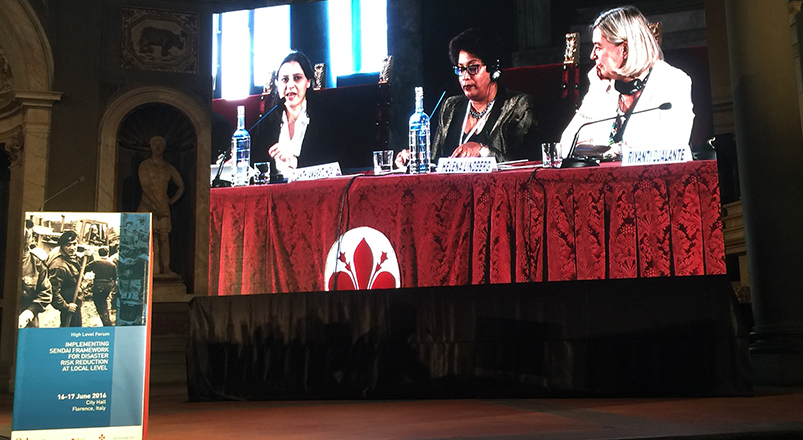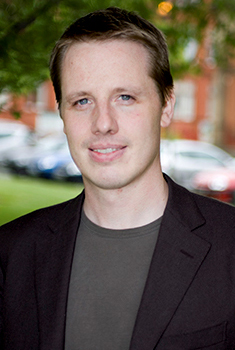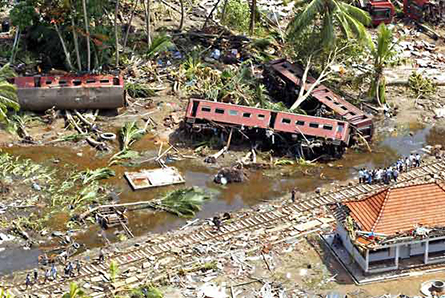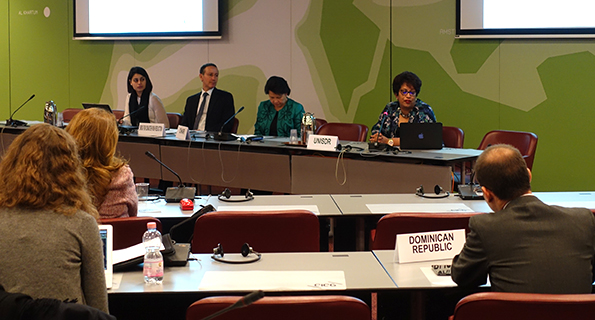Prof’s lead role in Sendai Framework for Disaster Risk Reduction
 Professor Dilanthi Amaratunga (centre) at the Sendai Framework conference in Florence
Professor Dilanthi Amaratunga (centre) at the Sendai Framework conference in Florence
Thu, 30 Jun 2016 13:17:00 BST
Professor Dilanthi Amaratunga and Professor Richard Haigh will produce two of a series of United Nations guidebooks as part of a major strategy to reduce loss of life
 THE United Nations has chosen two University of Huddersfield professors to lead the development of guidebooks that will be circulated globally as part of a major strategy to reduce the risk of lives being lost and communities shattered by natural disaster.
THE United Nations has chosen two University of Huddersfield professors to lead the development of guidebooks that will be circulated globally as part of a major strategy to reduce the risk of lives being lost and communities shattered by natural disaster.
Professor Dilanthi Amaratunga and Professor Richard Haigh (pictured right) earned the prestigious role after making a presentation that impressed 200 international expert delegates at a meeting in Geneva.
The professors are co-directors of the multi-disciplinary Global Disaster Resilience Centre at the University’s School of Art, Design and Architecture. Now, they will play an important part in the implementation of the Sendai Framework for Disaster Risk Reduction. Adopted in 2015 at a UN conference held in Japan, this international treaty will be in place for 15 years.
The UN is to disseminate the advice and the objectives of the Sendai Framework in a series of guidebooks that will be translated into multiple languages and distributed by the thousands in the 187 countries that signed the treaty.
 ◄ Tsunami damage in Sri Lanka
◄ Tsunami damage in Sri Lanka
Professors Amaratunga and Haigh will take responsibility for two of the guidebooks – one dealing with governance and accountability, principally aimed at national governments; and one that covers construction policy and practice, targeted at industry bodies and building firms.
“This is very exciting for our Centre,” said Professor Haigh. “The Sendai Framework is a major, high-level agreement, but now we are trying to translate it into meaningful action.”
He and Professor Amaratunga are frequent contributors to international conferences and workshops dealing with dimensions of disaster resilience. It was after they conducted an international workshop in Sri Lanka in 2015 that the pair were asked to make a presentation to the UN support group of governments in Geneva, detailing their thinking about Disaster Risk Governance and the Sendai Framework.
They duly spoke to 200 delegates, representing 88 governments. An invitation to lead the development of two of the Sendai guidebooks followed.
 In order to compile material, the UN has selected a multi-national working party of 54 experts. One meeting has taken place in Florence, Italy, and another is to be held in New Delhi, India as part of the Asian Ministerial conference that will be organised by the Ministry of Home Affairs, Government of India under the leadership of Prime Minister of India, Honourable Ahri Narendra Modi. Six languages are spoken by delegates, necessitating a team of interpreters.
In order to compile material, the UN has selected a multi-national working party of 54 experts. One meeting has taken place in Florence, Italy, and another is to be held in New Delhi, India as part of the Asian Ministerial conference that will be organised by the Ministry of Home Affairs, Government of India under the leadership of Prime Minister of India, Honourable Ahri Narendra Modi. Six languages are spoken by delegates, necessitating a team of interpreters.
The Huddersfield professors will then edit the contributions of the working parties, aiming to produce concise guidebooks. The overall series title is Sendai Framework: Words into Action Implementation Guide. Professors Amaratunga and Haigh will edit volumes titled Disaster Risk Reduction, Governance and Accountability and Construction Policy and Practice.
There will be an opportunity to discuss progress on the guides at the International Conference on Building Resilience, Auckland in September, when full drafts should be available. The aim is that they will be published in December 2016 and will be officially launched by the United Nations Secretary General in May 2017 at the UN Global Platform to be held in Mexico.







